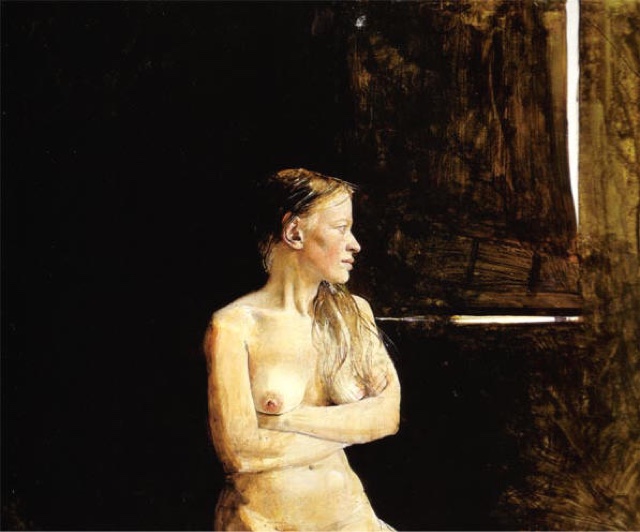La Belle Dame Sans Merci
 |
| Dickse, La Belle Dame Sans Merci |
La Belle Dame Sans Merci
John Keats (1795-1821) | |
O what can ail thee, Knight-at-arms,Alone and palely loitering? | |
The sedge has wither’d from the lake,
| |
And no birds sing.
| |
O what can ail thee, knight-at-arms!
|
5
|
So haggard and so woe-begone?
| |
The squirrel’s granary is full,
| |
And the harvest’s done.
| |
I see a lily on thy brow
| |
With anguish moist and fever dew,
|
10
|
And on thy cheeks a fading rose
| |
Fast withereth too.
| |
I met a lady in the meads,
| |
Full beautiful—a faery’s child,
| |
Her hair was long, her foot was light,
|
15
|
And her eyes were wild.
| |
I made a garland for her head,
| |
And bracelets too, and fragrant zone;
| |
She look’d at me as she did love,
| |
And made sweet moan.
|
20
|
I set her on my pacing steed,
| |
And nothing else saw all day long,
| |
For sidelong would she bend, and sing
| |
A faery’s song.
| |
She found me roots of relish sweet,
|
25
|
And honey wild, and manna dew,
| |
And sure in language strange she said—
| |
“I love thee true.”
| |
She took me to her elfin grot,
| |
And there she wept, and sigh’d fill sore,
|
30
|
And there I shut her wild wild eyes
| |
With kisses four.
| |
And there she lulled me asleep,
| |
And there I dream’d—Ah! woe betide!
| |
The latest dream I ever dream’d
|
35
|
On the cold hill’s side.
| |
I saw pale kings and princes too,
| |
Pale warriors, death-pale were they all;
| |
They cried—“La Belle Dame sans Merci
| |
Hath thee in thrall!”
|
40
|
I saw their starved lips in the gloam,
| |
With horrid warning gaped wide,
| |
And I awoke and found me here,
| |
On the cold hill’s side.
| |
And this is why I sojourn here,
| |
Alone and palely loitering,
| |
Though the sedge is wither’d from the lake,
| |
And no birds sing.
___________________________
|
La Bella Dama Sin Piedad
John Keats (1795-1821)
¡Oh! ¿Qué pena te acosa, caballero en armas, vagabundo pálido y solitario? Las flores del lago están marchitas; y los pájaros callan.
¡Oh! ¿Por qué sufres, caballero en armas, tan maliciento y dolorido? La ardilla ha llenado su granero y la mies ya fue guardada.
Un lirio veo en tu frente, bañada por la angustia y la lluvia de la fiebre, y en tus mejillas una rosa sufriente, también mustia antes de su tiempo.
Una dama encontré en la pradera, de belleza consumada, bella como una hija de las hadas; largos eran sus cabellos, su pie ligero, sus ojos hechiceros.
Tejí una corona para su cabeza, y brazaletes y un cinturón perfumado. Ella me miró como si me amase, y dejó oír un dulce plañido.
Yo la subí a mi dócil corcel, y nada fuera de ella vieron mis ojos aquel día; pues sentada en la silla cantaba una melodía de hadas.
Ella me reveló raíces de delicados sabores, y miel silvestre y rocío celestial, y sin duda en su lengua extraña me decía: Te amo.
Me llevó a su gruta encantada, y allí lloró y suspiró tristemente; allí cerré yo sus ojos hechiceros con mis labios.
Ella me hizo dormir con sus caricias y allí soñé (¡Ah, pobre de mí!) el último sueño que he soñado sobre la falda helada de la montaña.
Ví pálidos reyes, y también princesas, y blancos guerreros, blancos como la muerte; y todos ellos exclamaban: ¡La belle dame sans merci te ha hecho su esclavo!
Y ví en la sombra sus labios fríos abrirse en terrible anticipación; y he aquí que desperté, y me encontré en la falda helada de la montaña.
Esa es la causa por la que vago, errabundo, pálido y solitario; aunque las flores del lago estén marchitas, y los pájaros callen.



